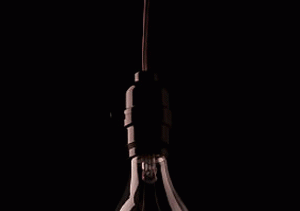Spike in energy poverty
Rising electricity costs have led to a state of energy poverty for low-income households, often leading to ill health and social deprivation, research has found.
Rising electricity costs have led to a state of energy poverty for low-income households, often leading to ill health and social deprivation, research has found.

Rising electricity costs have led to a state of energy poverty for low-income households, often leading to ill health and social deprivation, new research has found.
A New Form of Energy Poverty is the Hallmark of Liberalised Electricity Sectors, published in the latest issue of the Australian Journal of Social Issues, is co-authored by Dr Alan Morris from UNSW’s Faculty of Arts and Social Sciences and Dr Lynne Chester from the University of Sydney.
The term ‘energy poverty’ applies to Australian households who spend more than 10 per cent of their disposable income on energy bills.
“Our studies suggest that many disadvantaged households are experiencing misery, discomfort, ill health and sometimes even death, as well as other forms of material and social deprivation, because of the need to choose between essential household items and electricity,” said Dr Morris from the School of Social Sciences. In the past five years the average increase in NSW household electricity prices was nearly 80 per cent, more than 60 per cent in QLD, South Australia and Tasmania, and 57 per cent in WA. Increases for households in the ACT and NT were around 40 per cent. “The number of people experiencing energy poverty is growing rapidly in all countries with liberalised electricity sectors,” said Dr Morris. Some European prices rose by more than 100 per cent between 2000 and 2010. The energy impoverished population is estimated at 150 million in Europe, and growing. Dr Morris said there has been limited research on the consequences of rising electricity prices for the 3.5 million Australian households in the lowest income bracket. “Policy makers are informed by measures which severely understate electricity prices and there has been no substantive research about the impact on households.” The paper recommends a national review of state government assistance to low-income households and provision of long-term improvements to housing energy efficiency. “Rather than applying limited reactive policies, an approach to electricity pricing is needed that prevents adverse impacts on the standard of living for millions of Australian households,” said Dr Morris.
Media Contact: Fran Strachan | 9385 8732 | 0429 416 070